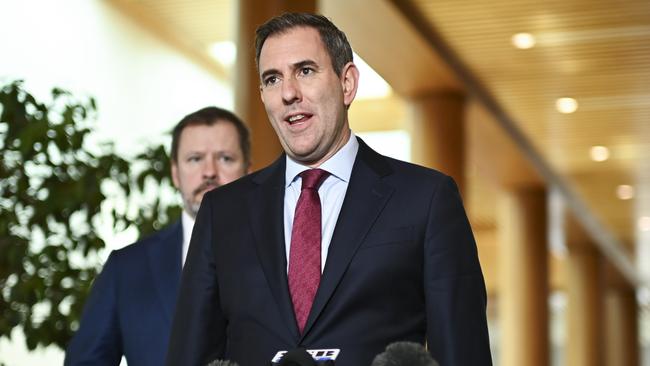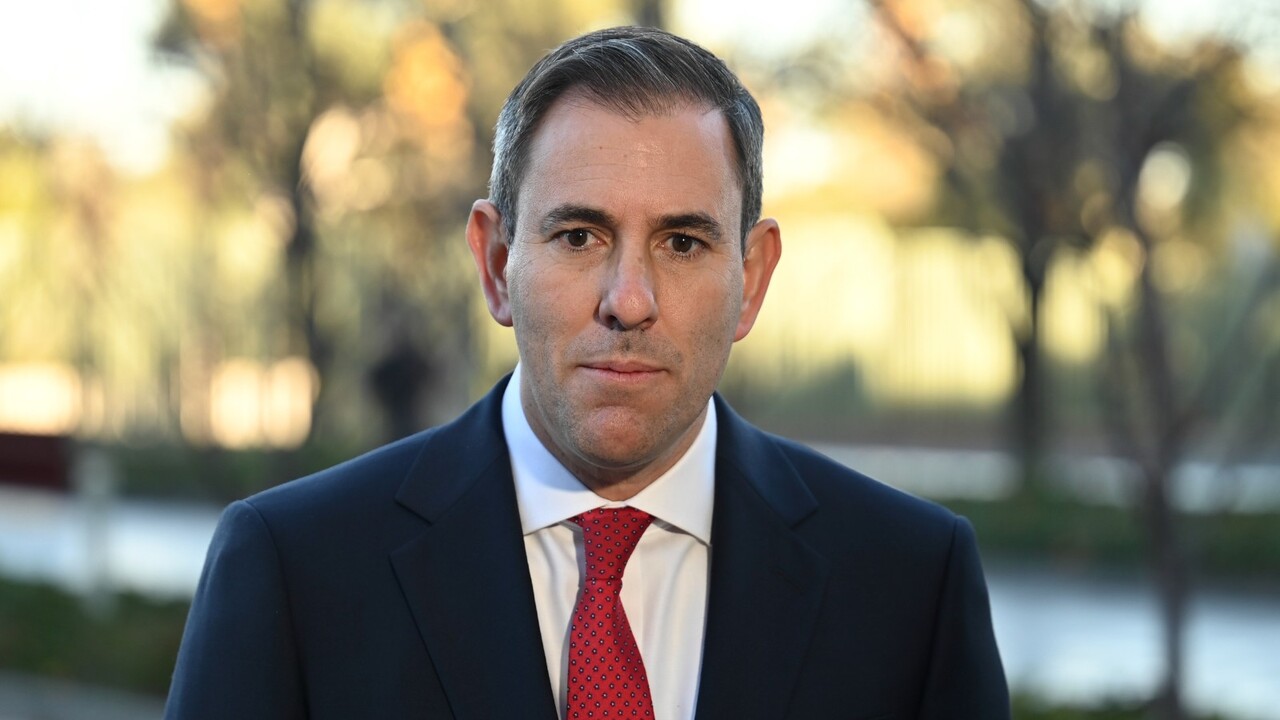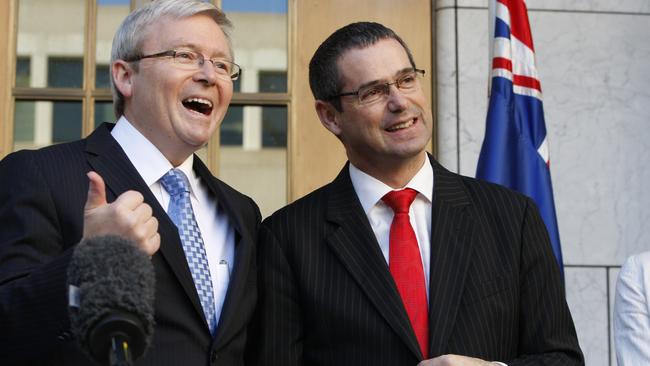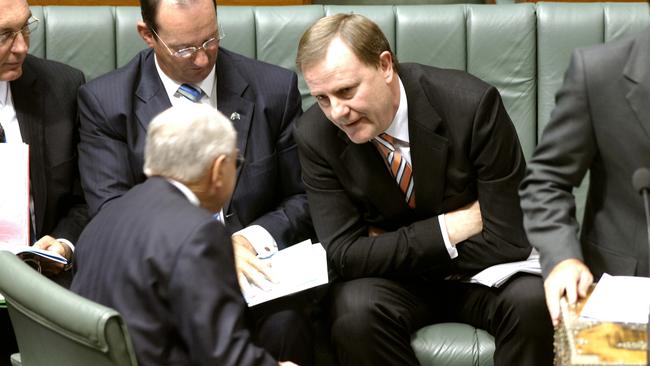Labor’s off-budget chicanery reeks of rotten politics

Rather than adhering to market-based principles, the fund is now directed to align with political priorities. If the government can direct the Future Fund’s $230bn to favoured sectors, will it target the $3.6 trillion in superannuation next? The temptation must be great.
While the government could amend the Future Fund Act to legitimise the new mandate, it seems more inclined to rely on the board of governors to rubberstamp the changes, avoiding scrutiny. The decision undermines the fund’s historically robust returns and introduces off-budget practices prone to corruption, escalating liabilities and costs. The changes imply the fund will sacrifice returns from other sectors to chase returns in the priority areas, clearly altering its existing investment balance.

The Future Fund was established to improve intergenerational equity and safeguard long-term fiscal sustainability through strong returns. The new priorities, while politically expedient, deviate from this core objective. Instead of optimising returns within prudent risk parameters, the fund risks becoming a quasi-political tool, undermining its reputation as a global exemplar of sovereign wealth management.
One of the most troubling aspects of the new investment mandate is its off-budget nature. It is the role of the expenditure review committee to examine, line by line, the various budget proposals from all portfolios and prioritise them in accordance with fiscal discipline and the government’s policy objectives. Off-budget mechanisms obscure the true fiscal position and reduce accountability, creating incentives for poor decision-making.
A recent example is the creation of the National Broadband Network, which Kevin Rudd and Stephen Conroy repeatedly claimed would earn a “full commercial rate of return”. On July 1 last year NBN Co effectively wrote off more than $30bn of its historical costs, accepting it could never recover the full costs of its creation. Yet those costs were incurred by the taxpayer.
Meanwhile, in June this year the Parliamentary Budget Office highlighted a significant rise in off-budget financing in the 2024-25 budget, with several large-scale programs funded off-budget including the Housing Australia Future Fund, the Rewiring the Nation program and the National Reconstruction Fund.
Australia’s Charter of Budget Honesty, the OECD’s good budgeting principles and the International Monetary Fund’s Fiscal Transparency Code all emphasise the importance of transparency. By bypassing these principles, the government’s approach creates opportunities for inefficiency and mismanagement, while the Reserve Bank has less visibility of the government’s true fiscal exposure.

Without rigorous safeguards, the Future Fund risks becoming a shadow budget – a vehicle for funnelling resources into politically expedient projects with inadequate scrutiny. Such investments are likely to be illiquid and speculative, with wide diversions between valuations based on assumptions about future performance and the government’s policy direction.
The changed mandate also increases explicit and implicit fiscal risks, since the fund is increasing its allocation to these sectors beyond what it would choose in the absence of the mandate.
These explicit risks are compounded by the political imperative of the government to ensure the success of the priority areas, creating implicit risks with the potential for bailouts and further fiscal support measures. Investment decisions, no longer driven by market fundamentals, risk inefficiencies and detract from net returns. For example, renewable energy projects often require substantial subsidies, making them unsuitable for a fund focused on financial returns.
The Future Fund’s independence has been central to its success, allowing it to achieve a 10-year return of 8.3 per cent a year. Political interference risks eroding this independence, transforming the fund into a tool for fiscal expedience. This could reduce public trust and undermine the fund’s capacity to serve future generations. A parallel here can be found with an independent RBA: when independence is compromised the credibility of the institution suffers and monetary policy is less potent, requiring higher interest rates to achieve the same end. So, also, with the Future Fund: sacrificing its independence reduces its risk-adjusted net returns, an opportunity cost that affects all Australians.
Blurring the lines between fiscal policy and investment management further compounds these issues.
The fund’s managers are not policymakers and should not be tasked with implementing government priorities. Their role is to maximise returns within prudent risk parameters, not to subsidise politically motivated projects.

If the government wishes to support housing, renewable energy or infrastructure, it should do so through the traditional budget process. Direct appropriations allow for parliamentary scrutiny, ensuring taxpayer funds are allocated efficiently and accountably. This approach also aligns with the principles of sound public financial management, fostering transparency and discipline. Moreover, if the government is directly allocating funds to these sectors through the normal budget processes, while the Future Fund is separately allocating more funds via the new mandate, there is a high probability that resource misallocation will be exacerbated while the true extent of government support to these sectors will be hidden. Governments have an uncanny knack for “picking winners” that lose spectacularly, squandering tens of billions on white elephants, boondoggles and vanity projects that serve bureaucratic dreams but leave taxpayers footing the bill. Now the Future Fund will be dragged into those dreams.
The Productivity Commission publishes an annual Trade and Assistance Review that provides a comprehensive assessment of Australian government assistance to industry. It is likely that Future Fund investments in the priority sectors will need to be included in the Productivity Commission’s assessment as they amount to industry assistance.
The Treasurer’s decision to repurpose the Future Fund threatens its independence, efficiency and long-term viability. The fund should remain focused on generating strong returns for future generations and not be a tool for assisting government priorities. Addressing pressing social issues is vital, but it must occur through transparent, accountable budget processes. Anything less risks undermining public confidence in Australia’s fiscal management and institutions that underpin it.
Paul Lindwall is a former productivity commissioner.





Jim Chalmers’ decision to change the Future Fund’s investment mandate is disturbing, potentially violating section 18A of the Future Fund Act by indirectly compelling investments in housing, renewable energy and infrastructure. It increases fiscal risks, undermines independence and reduces net returns.